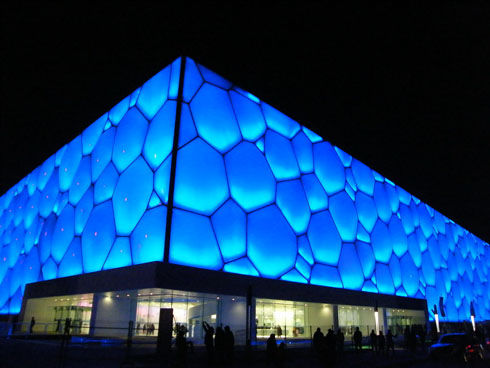The government also bundled the stadiums together with other commercial facilities for tendering purposes, as the stadiums themselves offered less opportunity for profit. For example, the National Indoor Stadium was bundled with the very profitable Olympic Village, becoming the hottest project for investor bidding.
How will the Bird's Nest generate profits in future?
"We thought about the operation of the Bird's Nest when we bid for the project," Zhang Hengli said. "The subsequent operation of the stadium will be commercialized, and the total commercial area is 80 to 90,000 square meters out of a total of 258,000 square meters. Some facilities will be dismantled and we took this into account in our original design before construction."
Before construction, Bird's Nest raised 100 million yuan (US$15 million) in sponsorship for its commercial activities after the Games, of which China Petroleum & Chemical Corporation (Sinopec) accounted for 30 million yuan (US$4 million). Sponsors such as Kohler, CNC, and Bayer Medication are found on the National Stadium's website.
"Regular stadium rentals, advertising, and tickets sale are also important income," Zhang said. Beijing Guo'an soccer team will take on the National Stadium as its main training field and will be formally located there.
 |
|
Water Cube
|
In addition, the National Stadium will spend 300 million yuan (US$44 million) for refurbishing, and finance a comprehensive sports mall through public investment. They are also seeking a buyer among big-name companies for the naming rights of the Bird's Nest.
Huati Century Stadium Operation and Management Co Ltd, the operator of Water Cube, also started planning early for the stadium's future operation. The main sources of Water Cube's income will be from rentals and commercial activities. Bi Jinbo, the company's vice-general manager, said that the Water Cube will be open to public at a fee, but that the price will be affordable to the public.